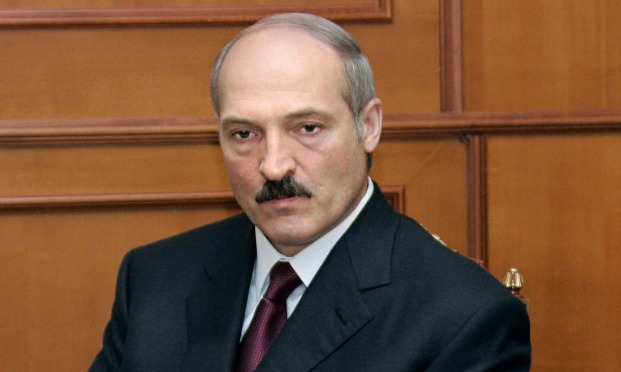
Can Lukashenka Survive?
Publication: Eurasia Daily Monitor Volume: 8 Issue: 134
By:

Belarusian President Alyaksandr Lukashenka is facing the greatest crisis of his seventeen years in office. With inflation rampant, hard currency unavailable, bank reserves dwindling, power cuts caused by non-payment of electricity costs to Russia, and growing dissatisfaction with his rule among the population, media speculation has been rife that his days in office may be numbered, and that he can expect the fate of other hard-line rulers removed in recent times, such as Hosni Mubarak in Egypt or Kurmanbek Bakiyev in Kyrgyzstan.
Can Lukashenka overcome his current problems and remain in office?
As Olga Karatch has noted (Our House, June 28), Belarus is unique among former Soviet countries for its lack of elites. There are no alternative sources of power. Unlike Ukraine there is no ruling political party that conceivably could offer an alternative leader. Prime Ministers remain in office for short terms and the current incumbent, Mikhail Myasnikovich, is a well-known Lukashenka acolyte lacking in charisma and popular appeal. Thus, there is an absence of the means for change from within the ruling structure. All positions derive from the president.
In some areas nepotism clearly prevails. At the July 3 “Independence Day” parade, Lukashenka’s son Viktor attended in the uniform of a general, while his youngest son Mikalay (aged 7) appeared as usual at his father’s side. Yet even within this family, few would suggest or predict that one of the sons could take over. Their relative eminence is entirely at the behest of their father, as Lukashenka has acknowledged (www.telegraf.by, October 28, 2010).
Lukashenka has deliberately cultivated the support of the KGB and the army. In the case of the latter, the president has elevated the cult of the Great Patriotic War to a defining national symbol. Concerning the July 3 parade, reportedly only veterans could be applauded by the public (Belarusian Television, July 2) and the 35,000 or so remaining from 1941-45 are regularly feted and featured in the official media. The regular police have shown no signs of disaffection. On the contrary they have exhibited marked enthusiasm for harassing and arresting youngsters protesting peacefully on the streets.
The opposition has been in disarray since the brutal crackdown that followed the December 2010 presidential elections. The main challenger to Lukashenka in terms of the official vote, Andrey Sannikau, is serving five years in a penal colony. Mikalay Statkevich, a leader of the Social Democrats, received a six-year term. Uladimizir Nyaklayeu, who formed an alliance with Sannikau in the latter part of the election campaign, is under house arrest. Hundreds of other prominent oppositionists are in jail or closely monitored. Some, like Ales Mikhalevich, the former deputy chairman of the Popular Front, have fled the country (The New York Times, March 14).
Thus, the main action on the streets of Minsk and other cities derives from youth protests based on a weekly gathering known as the “revolution through social networking” (Belorusskiy Partizan, July 3). Officially the state controls the Internet in Belarus, but it has proved incapable of preventing these disciplined gatherings, at which young men and women simply clap in unison before they are rounded up by militia. Though unlikely to bring an end to the regime, they clearly infuriate the authorities, who have responded to the point that smiling or laughing in public is regarded as a provocation. The reference to applause for veterans at the July 3 commemoration is a sign that if directed at Lukashenka, it would denote irony or sarcasm (La Republicca, July 1).
The EU has not expelled Belarus from its Eastern Partnership but has expanded its travel ban to include judges and prosecutors (www.telegraf.by, June 21). It has remained immune to periodic appeals from Lukashenka for a closer relationship and several leading politicians have commented that it is time for regime change in Minsk. In short, the European avenue, exploited successfully by the president in the past, has been closed off.
By contrast, Russia has emerged as the main external player in Belarusian politics, partly by default. Though others have been mentioned as possible interventionists in the financial crisis, such as the International Monetary Fund (IMF) and China (essentially as donors of major loans) none has the influence or proximity of Russia. Moscow has tired of Lukashenka’s unpredictability and evasiveness and shown few qualms about making life difficult for a struggling neighbor and partner. While Russia has agreed to several large loans over the past few years, it has increasingly imposed conditions, most notably the privatization of several large companies and the dismantling of the Belarusian state economy. It can afford to be patient because the pieces are all falling nicely into place.
But is there a need for Moscow to bring about the downfall of Lukashenka? There is little to be gained from replacing a weakening leader. Belarusians may be dissatisfied with Lukashenka, whose popularity according to the latest NISEPI opinion poll has dropped from 53 percent to 29.3 percent in recent weeks (cited in Belarus Digest, July 2), but they are supportive of their national state. The Russia-Belarus Union has remained a paper fiction for many years in part because the population does not wish to be attached to Russia or join it in some sort of unequal union. Consequently, direct Russian intervention would be strongly opposed.
Hence a struggling Lukashenka is better than a new leader. Indeed, it may be in Moscow’s interest to maintain him in office as long as possible. As for Lukashenka himself, his increasingly wild statements and accusations border on the delusional (Voice of Russia, July 3). He can no longer convince the population that he has a solution to the financial crisis, but there is no obvious mechanism to replace him.




